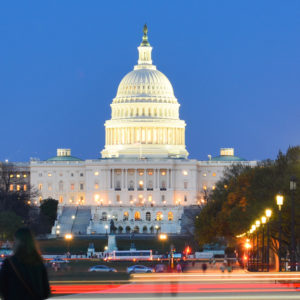The House of Representatives is preparing this week for a vote on a bill to exempt small broadband Internet providers from some net neutrality requirements included in the Federal Communications Commission’s new Internet rules.
Republicans in the House plan to move swiftly on the Small Business Broadband Deployment Act — legislation to relieve providers with no more than 250,000 subscribers from complying with transparency requirements included in the 2015 Open Internet Order.
Providers meeting the bill’s definition won’t have to disclose information including monthly data charges, promotional rates, data caps and network performance.
The House Rules Committee met Monday to discuss the rules under which the bill will be considered before it heads to floor for a vote as early as Wednesday, according to Republican Majority Leader Kevin McCarthy’s office.
Communications and Technology Subcommittee Chairman Greg Walden authored the bill to shield smaller providers from what he, fellow Republicans and providers themselves describe as too “burdensome” and costly for companies lacking the personnel and resources larger providers like Verizon and Comcast can deploy to ensure compliance.
The FCC itself exempted small providers from the requirements for one year after passing the Open Internet Order in 2015, and voted in December to extend the exemption for another year for providers with 100,000 or fewer subscribers.
Walden’s bill would extend that exemption for five years from the date of passage, and compel the FCC to report to Congress within 180 days whether the exemption should be made permanent, and if the definition of a “small business” should be reassessed.
Small providers testified before Congress earlier this year the rules have already forced them to delay plans for expanding their networks to reach more customers over concerns about the cost of hiring lawyers to ensure they’re in compliance with the new regulations.
“Small ISPs do not have in-house lawyers to review and understand the new disclosure rules, administrative staff to maintain the ongoing compliance, or the means to measure packet loss,” Elizabeth Bowles, president of both a trade association representing smaller providers and a smaller provider based in Arkansas told lawmakers in January.
“Moreover, every dollar spent on unnecessary regulatory compliance is one dollar that is not being spent on new hires, network upgrades, and expansion.”
Bowles said companies like hers lack the time, resources or employees to make certain they don’t run afoul of the rules.
“It is one thing for a large broadband provider with its army of lawyers to devote time and resources to the new requirements, and quite another for a [wireless Internet service provider] in West Yellowstone, Montana, to do the same.”
Walden and Energy and Commerce Committee Chairman Fred Upton agreed.
“Two goals central to this committee’s mission were reached,” Walden said following the committee’s advancement of the bill in February, “relieving regulatory burdens for small businesses and protecting consumers.”
“These companies will be able to use their resources to provide service to consumers instead of dealing with Washington red tape,” Upton added.
Larry Spiwak, a former FCC attorney and president of the regulatory and economic think-tank Phoenix Center, described the bill as a “political band-aid” to appease opponents o the rules.
“It’s an informal and political cost-benefit analysis,” Spiwak told InsideSources. “[The FCC] probably should have done a cost-benefit analysis in the [Open Internet] Order, which they never did.”
Democrats and pro-net neutrality interest groups including Public Knowledge questioned the claims of smaller providers, who they speculate could seek to take advantage of the exemption by acting as unregulated monopolies in small rural areas where many consumers lack a choice of competing carriers for service.
Despite some back-and-forth, the subcommittee agreed to the bill by voice vote last month. What Republicans and Democrats on the committee could not agree on is Illinois Republican Rep. Adam Kinzinger’s bill to block the FCC’s authority to regulate the rates broadband Internet service providers charge for service.
The Energy and Commerce Committee passed the bill along a partisan GOP-backed vote Tuesday despite protest from Democrats, who argued the bill’s overly broad language could weaken the FCC’s ability to protect consumers from fraudulent billing charges, or tackle other potential net neutrality violations like zero-rating and interconnection charges.
During Tuesday’s markup Walden singled out T-Mobile’s Binge On zero-rating service as one of the programs he’s seeking to protect with the bill.
The two-page No Rate Regulation of Broadband Internet Access Act simply states the FCC “may not regulate the rates charged for broadband Internet access service.”
“I don’t care if it is one sentence or one page or 100 pages, it says what it says, and it falls short,” California Democratic Rep. Anna Eshoo said during the markup.
Eshoo agreed with the general concept of the proposal during a hearing in January, but sided with Democrats Tuesday in calling for more amendments to protect the FCC’s authority. Republicans rejected those amendments, including one from Eshoo endorsed by FCC Chairman Tom Wheeler, which Wheeler said more accurately reflects the commission’s intention with regard to forbearing from rate regulation.
Republicans instead adopted a single amendment from Walden specifying some of the terms in the bill.
The White House previously indicated President Obama would sign the bill to relieve small providers, but would veto the rate regulation legislation.

